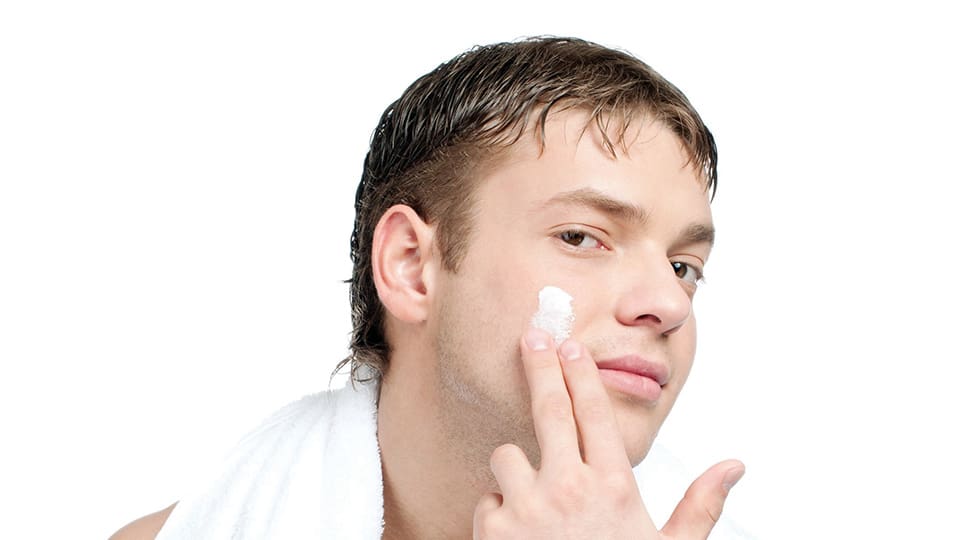Have Oily Or Dry Skin? Our Skin Specialist Recommends This Skincare Regime

Adopting a skincare regime is important as it is an intricate part of your personal hygiene and your highway to having good skin. At some point in your life you would have either seen or used a cleanser, moisturiser, toner, serum, ampoule, day cream, night cream, neck cream, eye cream or sunscreen.
In case you think that taking good care of your skin requires you to go through the drill of piling layer after layer of different products on your face, read on to find out.
How does a recommended daily skincare regime look like?
Your daily skincare regime should include three basic steps: cleanse, moisturise and sun protection (in the day). If your skin leans towards the dry side, adding a serum or ampoule to the regime could boost your skin’s balance by keeping it more hydrated and supple, thus reducing formation of fine lines.
Is it important to use face scrubs, and how often should it be used?
Depending on your skin type, it is advisable to use a gentle scrub two to three times a week to exfoliate your skin to remove accumulated dead skin cells that could hinder the absorption of your skincare products. It is important to work more on the T-zone of the face that tends to secrete more oil.
When to use a serum and ampoule? Can they be used together?
A serum is a skin care product that contains high concentration of active ingredients that usually targets at signs of ageing and is applied after cleansing and before moisturising. The liquid is made up of smaller molecules that can penetrate into your skin more easily, thereby allowing better absorption.
An ampoule works similarly to a serum. The difference is that it contains more condensed active ingredients than a serum and the molecule size is smaller. Depending on your skin’s condition, there is no real need to use both together. But if you do, use an ampoule before serum, and select different ingredients in the two to get a range of vitamins and minerals for your skin.
“exfoliate your skin to remove accumulated dead skin cells that could hinder the absorption of your skincare products”
Is using a neck cream necessary?
To keep things simple, treat the face, neck and chest as one body unit. You can use the same products on your face and apply the same on your neck. This includes sunscreen, which many tend to stop at the face, neglecting the neck area.
Is there a need to use an eye cream?
There is no magic eye cream out there that can remove wrinkles, dark eye circles and reduce puffiness in the lower eye lids. Habits like frequent squinting, near work and lack of rest all add to the visible problems around the eye.
As the skin around the eyes is more sensitive, thinner and prone to dryness, eye creams are usually formulated to contain active ingredients to address some of these issues. You can still use your facial lotion and pat it gently around the eyes. But if you choose to use an eye cream or serum, choose one that contains hyaluronic acid (hydrates), ceramides (retain moisture), retinol (promotes new cell growth or regeneration) and neuropeptides (increase the production of collagen and elastin production), vitamin C (collagen production), vitamin E (nourishes and soothes skin).
Is it better to use a separate cream for day and night?
The two contain different ingredients for the purposes that they are intended for. Some daytime creams contain sun protection to protect your skin from sun damage in the day while helping to keep it energised and firm. The texture of such creams tends to feel light after applying on the skin.
Night creams usually work on skin repair and regeneration while you sleep. They tend to be thicker in texture and contain anti-ageing ingredients to rejuvenate the skin through long hours.

Dr Paul Chia, Specialist in Dermatology, Raffles Skin & Aesthetics recommends the following skin care regime for people with oily or dry skin.
Oily Skin
1. Use a gentle cleanser to wash away excess oil without penetrating your skin’s natural moisture. Find a cleanser for oily skin to prevent stripping your skin of necessary oils.
2. Oily skin tends to have extra layer of dead skin cells. Exfoliate your skin three times a week with a gentle wash containing ingredients such as alpha hydroxyl salicylic acid or retinol.
3. Choose an alcohol-free toner that is formulated for oily skin. You can either use a cotton pad to apply it, or put it in a misting bottle and spray onto your face.
4. Choose an oil-free liquid or serum, which does not contain pore clogging ingredients, to hydrate your skin.
5. Choose a mask for oily skin and apply it every night. This will help you to balance your sebum production.
6. Protect your skin from the damaging effects of the sun. For oily skin type, choose either a sunscreen that is oil-free or use a mineral powder containing SPF 50 and PA ++.
Dry Skin
1. Use a creamy cleanser that is soap-free and fragrance free to avoid skin irritation as well as stripping of moisture from the skin.
2. For people with dry skin, exfoliators can be harsh and drying for the skin. Instead, gently massage your skin in a circular motion with a washcloth to remove dead skin cells before your cleanser and moisturiser. In acne-prone dry skin, a gentle exfoliator like retinol can be used twice a week.
3. Moisturising is key for dry skin types. Moisturise your face at least three times a day to keep your skin hydrated and to avoid tightness and roughness of the facial skin. Apply moisturiser immediately after cleansing.
Apply a heavier moisturising cream at night to keep your face hydrated while you sleep. Look for creams containing ingredients like shea butter, hyaluronic acid and glycerin or oils such as olive or coconut.
4.Use a hydrating and moisturising face mask once a week to help balance your skin tone. Choose a mask that is meant for dry and sensitive skin.
5. Choose a creamy moisturising sunscreen with SPF 50 and PA ++.
Be the First to Know!
Like what you see? Receive more health and wellness articles from Raffles Medical Group to aid you in leading a healthy lifestyle. SUBSCRIBE



